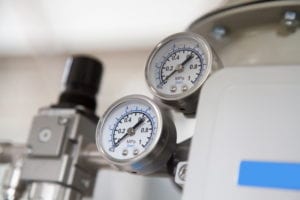Is a Boiler the Right Choice for Your Home? 3 Benefits of a Boiler

Whether you’re having a new home constructed or you need to replace a dying heater, Climate Control is here to help! This can be a difficult decision—what is the best type of HVAC air conditioning/heating option for your home? Should you just stick with the central heating, ductwork and forced air HVAC system you’re used to, or should you get your warm air from a boiler heating system, or other ductless or alternative air heating systems? Whatever HVAC system you choose, natural gas, heat pump, or other, you want to use less energy to get hot air, avoid cold spots and have the most energy efficient home heating system you can possibly get.
Most homeowners in our area are used to furnaces, and for good reason! But these systems require a network of air ducts to carry heated air into various rooms. This is fine, but if you don’t have room for ducts, or if your existing ducts are old and damaged, you might want an alternative.
We suggest you consider a boiler installation! These heating systems operate differently from forced-air heating, and Climate Control can offer installation services and warranty coverage for these great home heating systems. They use a process called radiant heating, which is heating up objects in rooms so they send out heat waves throughout the space. Boiler systems can utilize radiators, baseboard heaters, or in-floor piping to spread warmth throughout a space.
Selecting a new boiler system for your winter comfort can be a hard decision, but there are a number of reasons why it’s a good decision and can keep you out of hot water!
-
Boilers Are Energy Efficient
Boilers typically cost more to install upfront than furnaces do. We on the Climate Control team know this can be an inconvenience, but hear us out! Even though the initial cost is more, over time it costs less to run a boiler than it does a furnace due to its energy efficiency.
This is due to the fact that water is a more effective method to transfer heat than air is. Therefore, a boiler can heat your home more efficiently, saving energy and saving you money. This can result in hundreds of dollars in savings throughout the lifespan of your heating system, which can be about 2 decades as long as it’s well cared for!
-
Boilers are Durable and Long Lasting
Due to the nature of how boilers operate, they’re constructed with fewer moving parts than furnaces or heat pump systems. Forced-air systems have multiple motors and a blower fan in order to function, while the only major mechanical moving component in a boiler is the circulator pump.
Because of the lower number of mechanical parts, boilers undergo less strain to function. You can expect a hydronic boiler system to outlast most other types of heating systems—while heat pumps have a 10-15 year average lifespan and furnaces usually last 15-20, boilers can last up to three decades when properly cared for by a pro.
-
Boilers Require Less Service
Every heating system requires maintenance. Your boiler maintenance should be performed by a professional as part of your routine home maintenance once a year (such as your annual water heater check, or tune-ups). This will help make sure that your system isn’t suffering from scaling—a problem that occurs when hard water is present.
But since boilers have less movable parts, they don’t typically require as much as furnaces and heat pumps by way of repairs. We’re always here to provide repairs and any other service you may need, of course. This is just a peace of mind that you can rely on a boiler system more than any other type of heater.
For “Comfort & Care from the Team with the Bear,” contact Climate Control Heating, Cooling, and Plumbing. We provide exceptional boiler services in Kansas City, MO and more!

